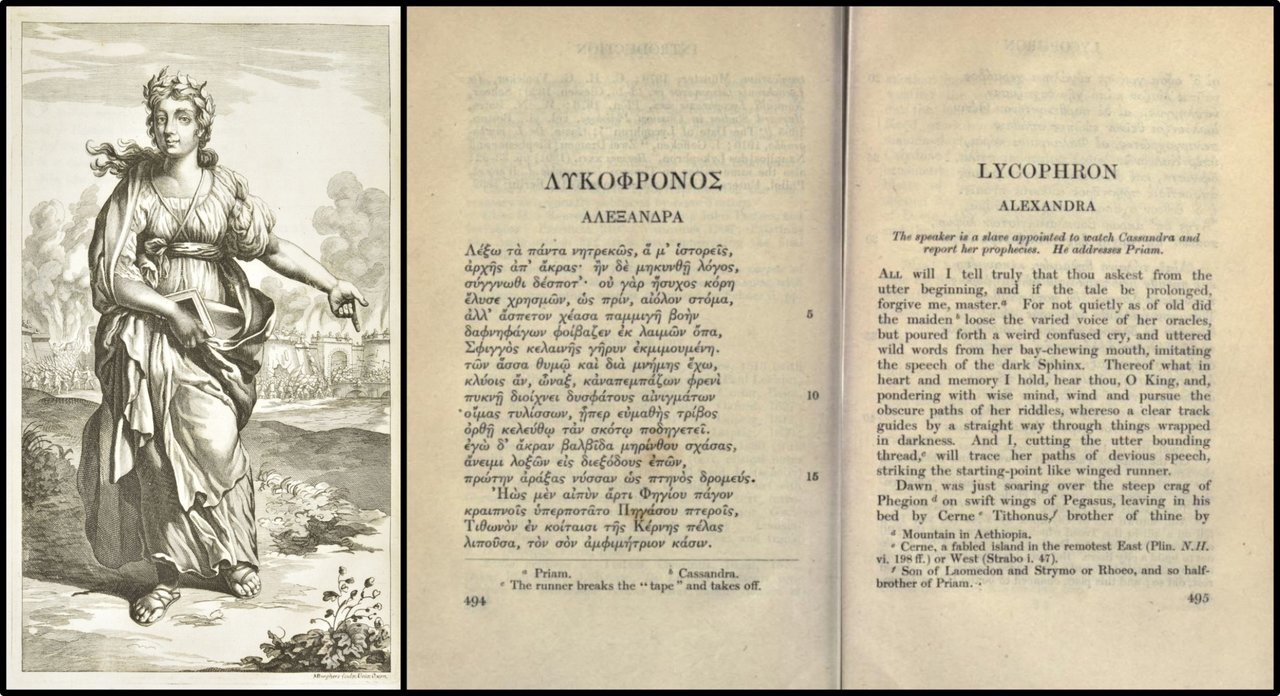Lycophron
Lycophron's Alexandra is a deliberately obscure poem that is presented as being the prophetic speech of Cassandra. Among the events Cassandra prophecises is the fall of Troy.
Cassandra does not mention Laocoön by name but the Byzantine scholar John Tzetzes (12th century CE) read the following lines of Lycophron's poem as an allusion to his fate, and as connecting his fate to the fate of Troy:

[the] son of Sisyphus [Sinon], lights his evil beacon for them who sailed away to narrow Leucophrys [renamed Tenedos] and the two islands of child-devouring Porceus.[note]
Porceus and Chariboea are the names of the snakes which came from Kalydnai and killed Laocoön and his sons.[note 2]
Note 1. Lycophron, Alexandra, lines 444–478, in Callimachus, 'Hymns and Epigrams', Lycophron, Aratus, translated by A. W. Mair and G. R. Mair (Cambridge, MA and London: Harvard University Press, 1955), pp. 348–349. DOI: 10.4159/DLCL.lycophron-alexandra.1921. [back to text]
Note 2. See entry for Sophocles. [back to text]
Resources available



